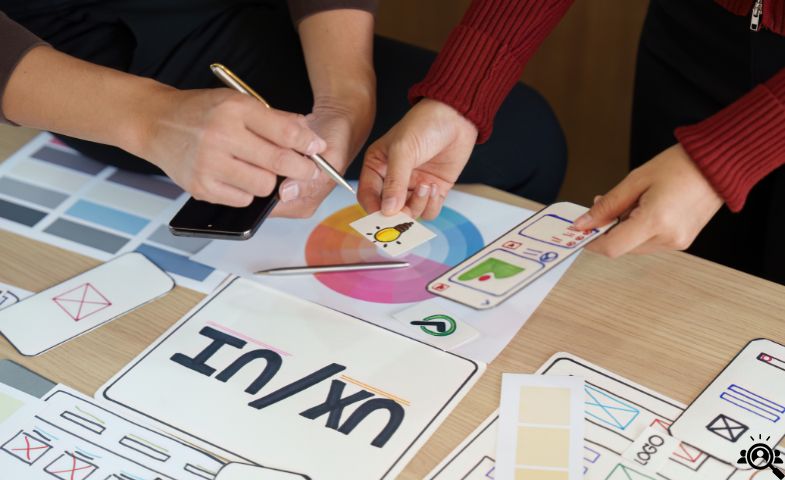You’ve submitted your resume and just got an email from a recruiter—“We’d like to schedule a screening interview.” Now what?
For many job seekers, this first interaction may seem casual, but make no mistake: a screening interview is a gatekeeper.
After 15 years in HR tech staffing, I’ve seen brilliant candidates shine or stumble at this stage simply because they didn’t understand its real purpose.
So, let’s unpack what is a screening interview, how it differs from other interview types, and why it could be your golden ticket—or a missed opportunity.
What Is a Screening Interview?
A screening interview is typically the initial step in the hiring process, where a recruiter or HR professional evaluates whether you meet the basic qualifications for the job.
It’s a fast, efficient way for employers to filter out unqualified candidates before involving hiring managers in the process.
In simple terms:
It’s a first impression test. You don’t have to be perfect—but you do have to be relevant.
What Is the Purpose of a Screening Interview?
From an employer’s perspective, the purpose of a screening interview is twofold:
Verify resume accuracy
Are your skills, qualifications, and experience aligned with the job description?
Assess culture fit and communication
Do you seem like someone who could thrive in this company?
For candidates, it’s an opportunity to:
-
Make a strong case for your candidacy
-
Learn more about the role
-
Ask thoughtful questions that show you’re genuinely interested
What Is a Pre-Screening Interview?
Often used interchangeably with screening interviews, a pre-screening interview may happen even before a formal interview is scheduled. This could be a short phone call or email exchange used to:
So if you’re wondering what is a pre screening job interview, it’s usually that quick 10–15 minute chat to qualify your interest before deeper discussions.
What Is a Phone Screening Interview?
A phone screening interview is the most common format. Typically lasting 15 to 30 minutes, it’s usually conducted by an internal recruiter, HR coordinator, or external staffing consultant like myself.
What Happens During a Phone Screening Interview?
Here’s what recruiters typically cover:
-
Brief role overview
-
Walkthrough of your resume
-
Key skills confirmation (especially technical or hard skills)
-
Availability and notice period
-
Expected salary
-
Work authorization status (especially for international candidates)
-
Soft skills evaluation based on how you communicate
If you’re wondering what is a phone screening job interview, it’s not a deep technical round—it’s more of a “Do we move forward?” checkpoint.
What Is a Video Screening Interview?
With remote hiring on the rise, video screening interviews are gaining traction. These can be:
-
Live video calls (Zoom, Teams, Google Meet)
-
Pre-recorded interviews (where you answer questions via a platform like HireVue or SparkHire)
The benefit? Recruiters get to see your demeanor, professionalism, and presence, which adds a layer of assessment compared to phone calls.
If you’re unsure about what is a pre screening phone interview, think of it as a digital handshake—it bridges the gap between a phone call and a full-blown virtual interview.
What Is a Screener Interview?
Another term for screening interviews, a screener interview is just a recruiter’s way of saying:
“We’re doing a quick check to see if it’s worth moving you to the next round.”
So when you hear what is a screener interview, know that it’s essentially the same as a pre-screening or screening call.
What Is a Pre-Screening Phone Interview?
A pre-screening phone interview typically happens:
This quick call helps determine if both the candidate and employer should invest more time. It’s also a chance to discuss logistics like remote work, travel, or shift availability.
10 Common Screening Interview Questions (and What Recruiters Look For)
-
Can you walk me through your resume?
Looking for clarity, confidence, and relevance.
-
What attracted you to this role?
Checking motivation and whether you read the job description.
-
What’s your notice period or availability?
Assessing fit with the hiring timeline.
-
What’s your expected compensation range?
Evaluating budget alignment and market awareness.
-
Why are you leaving your current role?
Looking for professionalism and red flags.
-
What are your key strengths?
Checking alignment with the role’s core requirements.
-
Tell me about a recent challenge and how you handled it.
Soft skill and problem-solving check.
-
Are you open to remote/in-office/hybrid work?
Assessing flexibility and practical fit.
-
Do you have experience with [specific tool or platform]?
Confirming technical capability.
-
Any questions for us?
Evaluating interest and research.
What to Expect in a Screening Interview: Candidate POV
As someone who’s prepared hundreds of candidates, here’s a quick breakdown of what to expect:
| Format |
Duration |
Who You’ll Speak With |
Focus Areas |
| Phone |
15–30 mins |
HR/Recruiter |
Resume fit, availability, basic skills |
| Video (Live) |
20–40 mins |
HR or Staffing Consultant |
Personality, communication, cultural fit |
| Pre-recorded |
Varies |
Automated |
Prompt-based questions, response clarity |
Tips to Ace Your Screening Interview
1. Research the Company
Demonstrate you’re not just shooting your shot randomly. Mention recent news, company values, or notable projects.
2. Tailor Your Responses
Frame your answers around the job description. Use keywords and relevant accomplishments.
3. Prepare Your Environment
If it’s a phone or video interview, find a quiet space with good signal or Wi-Fi.
4. Have Your Resume Handy
You’ll likely be asked to walk through your resume—have it printed or on a second screen.
5. Practice Professionalism
Use clear language, don’t interrupt, and express genuine interest.
6. Follow Up
Send a thank-you email within 24 hours—this is often overlooked but always appreciated.
Common Mistakes to Avoid
-
Talking too much or going off-topic
-
Sounding disinterested or too casual
-
Being unprepared for salary or notice period questions
-
Not asking any questions at the end
-
Treating it like a formality instead of a filter
Final Thoughts – What is a Pre Screening Interview
So, what is a screening interview? It’s your first audition. And just like an actor wouldn’t take a screen test lightly, neither should you.
This is your chance to:
-
Make a strong first impression
-
Stand out from the resume stack
-
Show you’re serious about the role
At Pakistan Recruitment, we’ve helped thousands of candidates navigate this step successfully. Whether you’re applying locally or remotely, a well-handled screening interview can be the gateway to your dream job.
FAQ – What is a Phone Screening for an Interview
What is a screening interview in hiring?
It’s an initial interview to check if a candidate meets the basic requirements of the job.
What’s the difference between a screening and main interview?
Screening interviews are short and evaluative; main interviews dive deeper into skills and personality.
Is a screening interview a good sign?
Yes—it means your resume caught the recruiter’s attention!
Can I fail a screening interview?
Yes. Lack of preparation, poor communication, or misalignment can eliminate you early.
What can I expect in a screening interview for remote job?
In a screening interview for a remote job, expect questions about your technical skills, communication, and ability to work independently. Recruiters also assess your remote work setup and time zone compatibility.
What are the questions asked in a screening interview for remote dev position?
Expect questions about your tech stack expertise, recent projects, and version control practices. Recruiters may also ask about remote collaboration tools and your availability across time zones.
What is the difference between screening interview and final interview?
A screening interview filters candidates based on basic qualifications and fit. A final interview evaluates top candidates in depth, often involving decision-makers.
Is it good to get a screening interview in USA?






